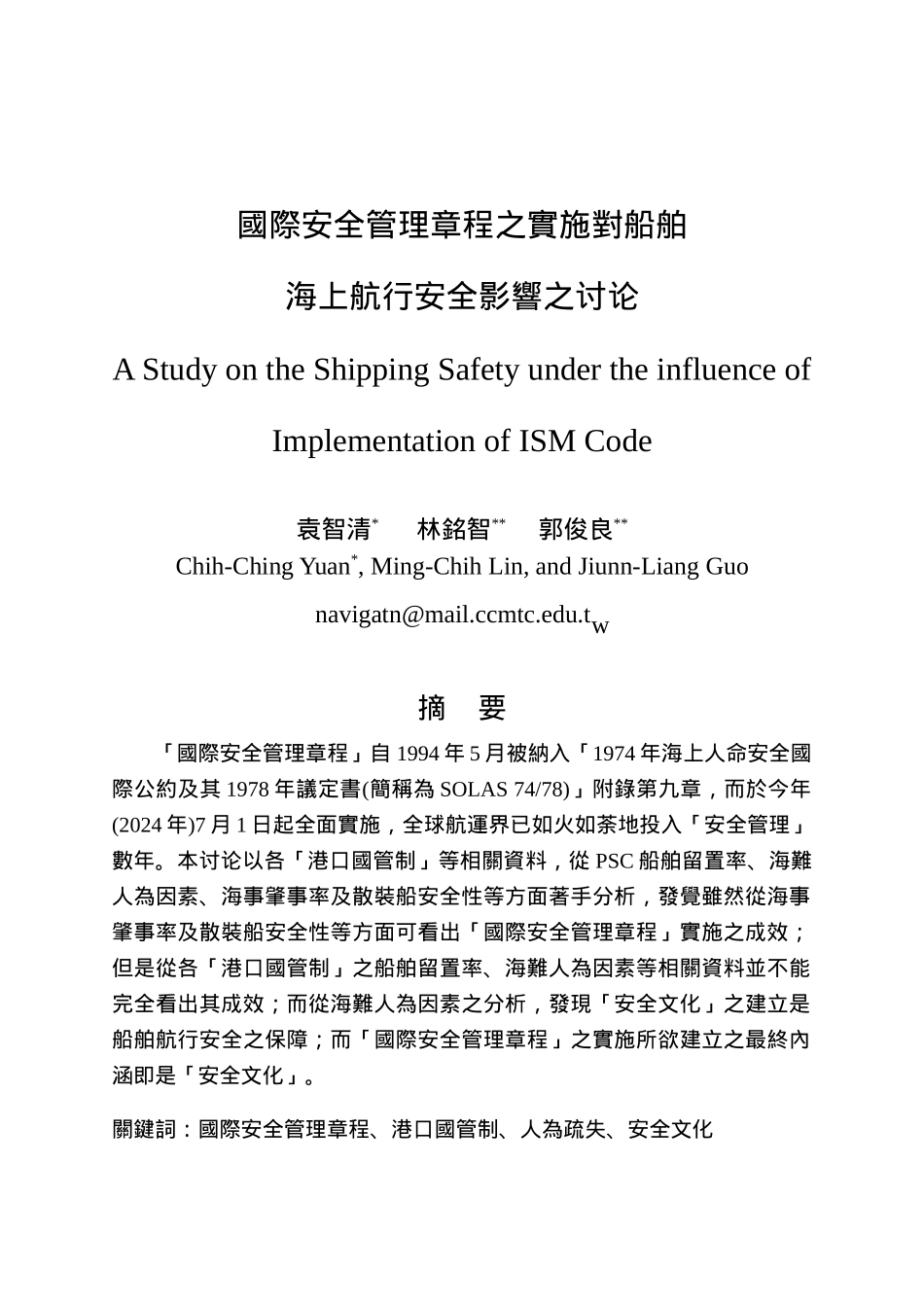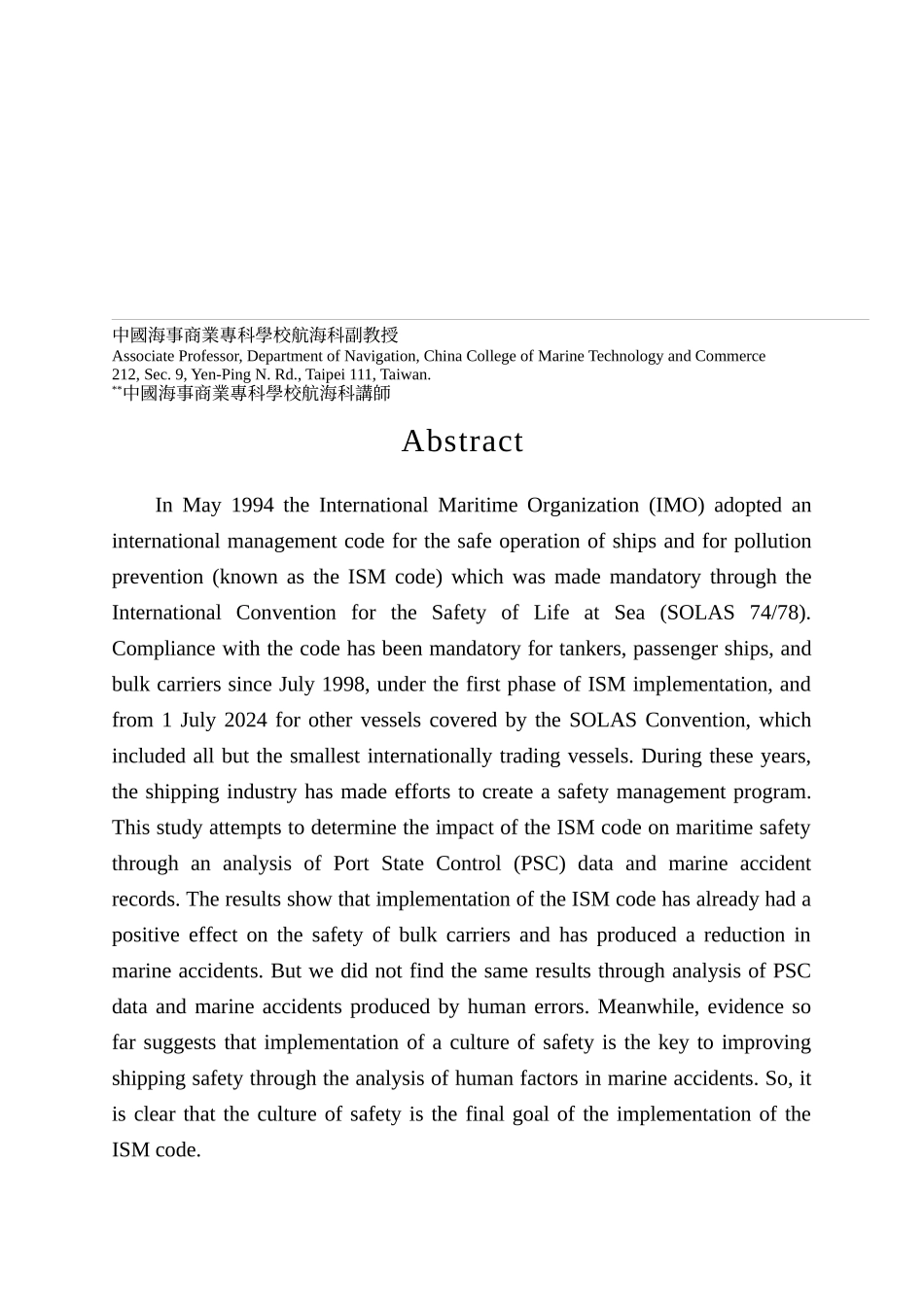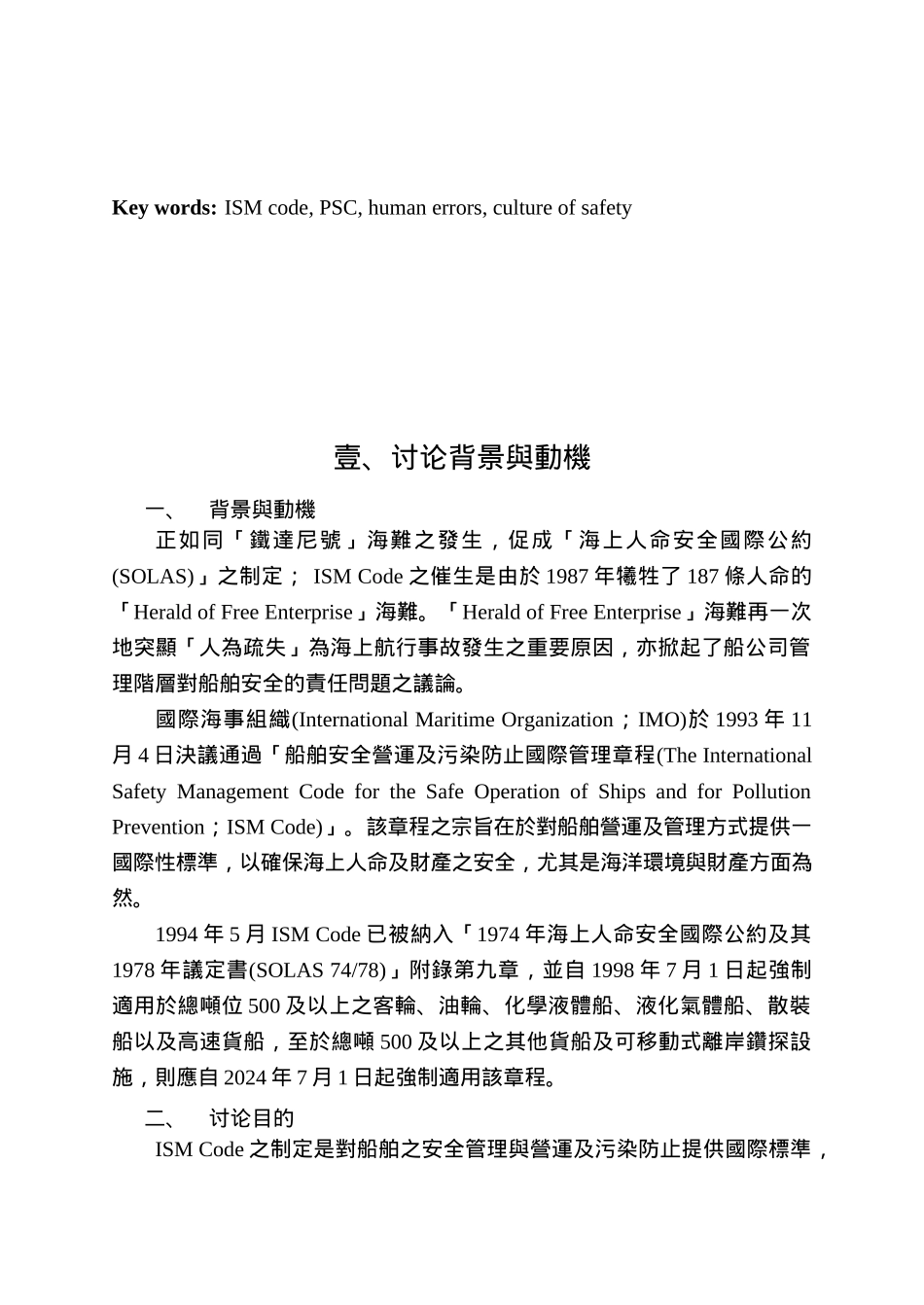國際安全管理章程之實施對船舶海上航行安全影響之讨论A Study on the Shipping Safety under the influence of Implementation of ISM Code袁智清* 林銘智** 郭俊良**Chih-Ching Yuan*, Ming-Chih Lin, and Jiunn-Liang Guonavigatn@mail.ccmtc.edu.tw 摘要「國際安全管理章程」自 1994 年 5 月被納入「1974 年海上人命安全國際公約及其 1978 年議定書(簡稱為 SOLAS 74/78)」附錄第九章,而於今年(2024 年)7 月 1 日起全面實施,全球航運界已如火如荼地投入「安全管理」數年。本讨论以各「港口國管制」等相關資料,從 PSC 船舶留置率、海難人為因素、海事肇事率及散裝船安全性等方面著手分析,發覺雖然從海事肇事率及散裝船安全性等方面可看出「國際安全管理章程」實施之成效;但是從各「港口國管制」之船舶留置率、海難人為因素等相關資料並不能完全看出其成效;而從海難人為因素之分析,發現「安全文化」之建立是船舶航行安全之保障;而「國際安全管理章程」之實施所欲建立之最終內涵即是「安全文化」。關鍵詞:國際安全管理章程、港口國管制、人為疏失、安全文化中國海事商業專科學校航海科副教授Associate Professor, Department of Navigation, China College of Marine Technology and Commerce212, Sec. 9, Yen-Ping N. Rd., Taipei 111, Taiwan.**中國海事商業專科學校航海科講師AbstractIn May 1994 the International Maritime Organization (IMO) adopted an international management code for the safe operation of ships and for pollution prevention (known as the ISM code) which was made mandatory through the International Convention for the Safety of Life at Sea (SOLAS 74/78). Compliance with the code has been mandatory for tankers, passenger ships, and bulk carriers since July 1998, under the first phase of ISM implementation, and from 1 July 2024 for other vessels covered by the SOLAS Convention, which included all but the smallest internationally trading vessels. During these years, the shipping industry has made efforts to create a safety management program. This study attempts to determine t...


